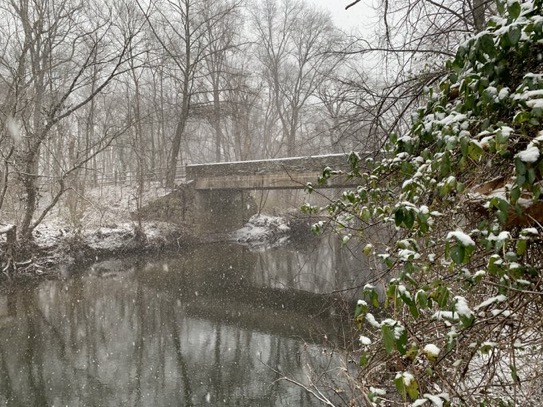Germantown Academy recently unveiled its snow day policy for the winter of 2023-24, a plan that reflects GA’s emphasis on student happiness and safety while being prepared to maintain educational continuity during emergency situations.
There is a unique sense of joy that unfolds when students wake to find school unexpectedly canceled due to a blanket of snow. This isn’t simply a break from academics; it’s a spontaneous day of celebration that brings families and neighborhood friends closer together through shared outdoor activities and cozy indoor gatherings. These short moments stitch themselves into the memories of students and parents alike, becoming moments of bonding that they cherish and share.
However, after several years of virtual and hybrid learning during the COVID-19 pandemic, many schools have considered replacing traditional snow days with virtual learning days in order to maximize learning and prevent students from falling behind.
A significant number of schools nationwide have adopted this approach, as shown by an Education Week survey which revealed that nearly 40% of school districts in the country have already made the switch.
Despite this possibility, many schools have decided to stick to traditional snow days. Nearby school districts, such as Central Bucks and Neshaminy, have chosen not to replace snow days with asynchronous work days or online classes.
These districts acknowledge the value of preserving snow days as a cherished tradition. They view them as a rite of passage, integral to many family traditions. Neshaminy School District Superintendent Rob McGee highlights activities such as cooking special snow day meals, sleeping in, playing games, building snowmen, and watching movies as essential snow day experiences.
Germantown Academy’s snow day policy this year takes a similar approach. This year’s policy dictates that whenever the weather conditions on campus call for a snow day, no homework will be assigned and all classes will be canceled for that day.
Head of Upper School Dr. Molly MacKean understands the cultural and emotional significance of traditional snow days and has chosen to uphold this tradition, ensuring that students can fully enjoy these unexpected breaks.
“I grew up in New England. There is a magic to a snow day, as it’s a sudden and unexpected holiday,” Dr. MacKean said. “Snow days are an important rite of passage and an important cultural activity, so we decided that we will not have virtual learning except in emergency circumstances.”
If a rare situation arises where two consecutive snow days are required, GA will instruct teachers to assign asynchronous work so that students can continue their learning without significantly disrupting their snow day activities.
When an exceedingly rare and powerful snowstorm necessitates three or more snow days in a row, GA plans on having brief virtual learning sessions starting at 10:00 am where teachers will have 25-minute check-ins with students to assign work and monitor their progress.
This policy decision demonstrates a pragmatic way to balance the school community’s needs during an emergency. It allows students to experience a semblance of a normal snow day by enabling them to sleep in. Additionally, students will have time to participate in snow-related chores with their families due to the short duration of virtual school days. At the same time, this approach ensures that students do not significantly fall behind in their schoolwork.
This year’s policy for inclement weather also has a strategy for dealing with an unusually snowy winter. If the total number of snow days surpasses a certain limit and starts to affect the schedules of GA teachers, a special virtual school day schedule will be implemented to ensure students stay on track.
Dr. Mackean emphasizes that these virtual snow day plans are an emergency measure, reserved for only the most extreme scenarios. Given that most snow days are typically one-day events, the vast majority of snow days will remain traditional, non-virtual days.
However, GA’s stance on preserving traditional snow days is not immediately clear upon reading the 2023-2024 snow day policy posted on Veracross.
The guidelines page starts off by stating that the school will be closed if the weather and conditions on campus call for a snow day. However, this initial brief statement is soon overshadowed by detailed plans for asynchronous work and virtual learning. As a result, many readers interpret this as a sign that traditional snow days are less favored and overlook the fact that these virtual day plans are designed for exceptional, emergency scenarios only.
To avoid possible confusion, a clearer way to convey this policy would be to initially emphasize that GA is committed to preserving the traditional snow day experience. It should then clarify that asynchronous work and virtual learning are backup measures, reserved for situations with an unusually high number of snow days in a season. This explanation should precede the more detailed descriptions of the plans for asynchronous work and virtual learning so that the community can better understand the context and intention behind these measures.

